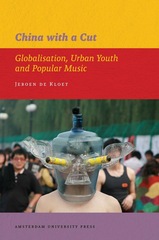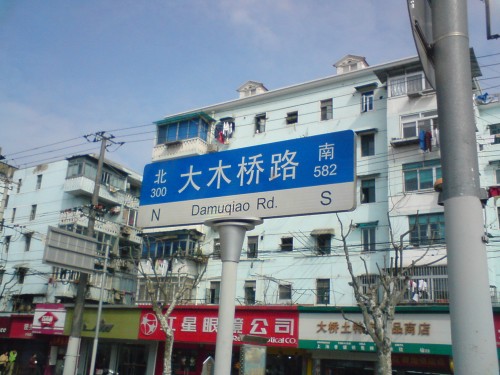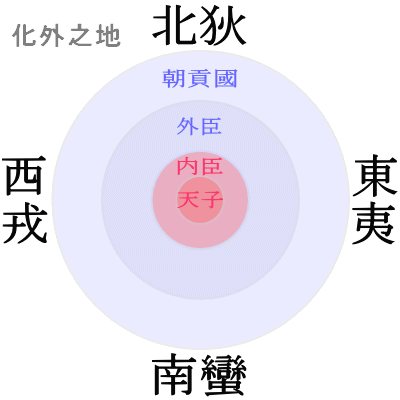 Jeroen de Kloet is the author of China with a Cut, which looks into the dakou culture and then the ensuing commercialism of China’s music market.
Jeroen de Kloet is the author of China with a Cut, which looks into the dakou culture and then the ensuing commercialism of China’s music market.
The book is available directly on the Amsterdam University Press website.
China with a Cut; extract from pp. 17-25
by Jeroen de Kloet
Dakou
In 1999, China’s most prolific rock critic, artist and entrepreneur Yan Jun published, together with Ou Ning, an overview of the bands he considered emblematic of what they coined as the Beijing New Sound movement (Yan & Ou 1999). Their book is dedicated to the dakou generation of China. At about the same time, Fu Chung, manager of the small Beijing record label New Bees, dedicated his first release of poppunk band The Flowers to the sellers of dakou tapes at Zhong Tu Men – one of the spots in Beijing where they are sold. Among many other meanings, da stands for strike, break, smash, attack, and kou stands for opening, entrance, cut. Together, dakou stands for the cut CDs and tapes being sold in urban China, often along with pirated CDs, on a bustling black market.
Dakou CDs are dumped by the West, intended to be recycled, but instead are smuggled into China. Dakou CDs and tapes are cut to prevent them from being sold. However, since a CD player reads CDs from the centre back to the margin, only the last part is lost. Not only have these CDs been tremendously nourishing for Chinese rock musicians in the 1990s, as they opened up a musical space that did not officially exist in China, they have also come to signify a whole urban generation. As rock critic Dundee explained (Dundee 1999: 28):
This plastic rubbish dumped by foreign record companies becomes a major source of pleasure for those discontented youths after they switch off their TV. When this plastic rubbish started flowing from the south to Beijing, it actually heralded a new rock era. All the new rock musicians in Beijing have grown up with dakou tapes.
It is remarkable that an urban generation chooses to name itself after an illegal product dumped by the West. On one Internet discussion site, You Dali presents a description of the dakou generation that is worth quoting at length. He writes:
Dakou cassette tape, dakou CD, dakou video, dakou MD, dakou vendors, dakou consumers, dakou musicians, dakou music critics, dakou magazines, dakou photo books; this is a dakou world, a new life where you don’t even have to leave the country to realise your spiritual adventure. When Americans fiercely give themselves a cut, they also give the world a possibility of communism and unity. The Government doesn’t encourage 1.3 billion people to listen to rock and roll. A small bunch of them therefore secretly look for offerings to their ears, to their eyes, to their brains, and to their generation. If you can’t do it openly, do it secretly! (…) It enables not only part of the population to become rich first, but also another part of the population to become poor first, and it also enables part of the population to become spiritually strong! Dakou products have ushered 1 million Chinese youths into a new wave, a new listening sensibility, a new awareness, a new mind and a new set of values. Whether the dakou generation is a jinkou [import] generation or a chukou [export] generation confuses quite a few social observers.3
This is a parody of propaganda talk, such as the reference to Deng Xiaoping’s famous defence of his reform policy, in which he declared that one part of the population should be allowed to become rich first. There is a certain critical irony toward the US, which ‘gives itself a cut’ and thereby supports a communist world. At the same time there is a critique of the Chinese state, which, according to this author, restricts the sound of rock. Also, the text evokes feelings of excitement and energy: The idea of being dakou seems empowering enough to build one’s life upon. It is not just a cut in a CD, but an identity bordering on the permissible.
According to Yan Jun, the dakou generation ‘represents a generation that refuses to be
suppressed, that seeks unseeingly, that connects to the underground, that creates marginal culture and lifestyle, that grows stubbornly, that resists and struggles.’ (Yan 2004: 176) His reading presents one side of being dakou, as it celebrates the rebellious. As this book will show, dakou culture is more diverse and more ambiguous. It is important to note that the label emerged at a time when youth culture – and Chinese culture in general – was critiqued for having lost its political zeal. Yan Jun’s claim to subversion can be read as an attempt to recuperate the marginal in a time when many observers flattened Chinese realities out under a singular blanket of alleged commercialization that was assumed to co-opt and silence any potential for critique. As Wang argues rather belittlingly, ‘The 1990s was actually an era that threw people into illusions, blindness, and horror, but this new thought appeals to shallowness and arrogance, exerting itself to cover a chaotic, bitter reality and at least to temporarily relieve anxieties.’ (2003: 602) Probably even more nihilistic, if not cynical, is Geremie Barmé’s In The Red – one of the most comprehensive overviews of the cultural field in the 1990s. Unfortunately, his overview comes with a wide array of unqualified and undertheorised adjectives to pigeonhole Chinese artists and dissidents. For example, in his view, ‘The quality of [Cui Jian’s] later work and the corpus of his music probably would have condemned him to a short-lived career in a normal cultural market, but the unsteady politics of mainland repression lent him a long-term validity and the appeal reserved for a veteran campaigner.’ (1999: 131)4
This book will show how developments in music culture over the 1990s up to today challenge cynical accounts and easy generalisations. By now, dakou has also become a label of the past, of a time when, according to rock musician Feng Jiangzhou, people still had the ability to focus, to concentrate on and indulge fully in music. Now, with the emergence of the Internet, people live, in Feng’s nostalgic view, in an utterly fragmented attention economy, and music is at most one of the many activities in which young people indulge:
I used to buy a lot of dakou cassettes. I studied the music carefully with all my heart. I conducted very detailed work. Part of the reason was that my source of information was simply limited and detailed work was my only solution. I benefited a lot from this work style. Now there is a vast sea of information on the Internet, people listen to music casually. You just have so much information to receive that you don’t know what one to choose. It has become my habit that I’m very selective in information, unlike the young people today, they know everything, but only a little.5
Balinghou
With the digitisation of music, the abundance of impulses has amplified. The current availability of sounds all over the world, where the most exotic or obscure sounds are just one click away on the Internet, has rendered the dakou market nearly obsolete. By the same token, beginning bands can easily upload their work. MySpace offers ample opportunities for Chinese bands for promotion and distribution – circumventing the music industry as well as the censors. In a country that seems particularly keen to periodise, these developments have given birth to yet another term for a generation conveniently classified by a decade: the 1980s (balinghou). This new generation of ‘little emperors,’ as they are often cynically referred to, all come from one-child families, born after the Cultural Revolution. For them, China has always been a country which is opening up, a place of rapid economic progress and modernisation, a place of prosperity and increased abundance, in particular in the urban areas. For this generation, ‘June 4th’ – the term commonly used to refer to the Tiananmen student demonstrations of 1989 – is an event of a long forgotten past, if they remember it at all. The Chinese Communist Party is a tool for networking; becoming a member facilitates one’s career. Different labels are used, besides balinghou, for this generation, like ‘linglei’ (alternative), ‘the birds’ nest generation,’ and the ‘zhongnanhai generation,’ named after a cigarette brand name. Zhongnanhai – also the central headquarters of the Chinese Communist Party, close to the Forbidden City – is the song title of one track by Carsick Cars…
* * *
‘Everyday I am somebody else,’ sings Shen Lihui in one of his songs from 1997, an apt
prediction of the spirit of the 80s generation, a spirit which became increasingly important in order to keep in tune with a post-socialist China of the 21st century. The celebration of agency as evoked by the references to individualism tends to ignore the more structural conditions that contain, steer and produce subjectivities like ‘the 80s generation.’ On a par with the assumed relation between modernization and individualisation, this generation is often accused in public discourse of being selfish and overtly materialistic, a generation driven by pleasure rather than politics, for whom ‘being alternative’ – linglei (other species) – has become merely a lifestyle choice (J. Wang 2008: 228). A generation for which life has to be niubi – literally, a cow’s vagina, metaphorically standing for cool and exciting.
Notes
- At www.guangzhou.elong.com/theme/themei48.html, accessed 12 July 2000.
- Other examples in which he all too sweepingly critiques Chinese artists are, for example, his critique of writer Wang Shuo (1999: 97), of film director Chen Kaige (Barme 1999: 194) and of film director Zhang Yuan: ‘… Zhang Yuan’s work, with unswerving entrepreneurship, had hit on an issue [homosexuality] sure to appeal to the international art-house world and its attendant critics. (…) [The gay scene] was being depicted partly for its sensational value by a director who had an established record of overcoming his filmic deficiencies by pursuing the controversial.’ (196) Unfortunately, he fails to make explicit what precisely, for example, Zhang Yuan’s ‘filmic deficiencies’ are.
- Qiu Ye speaks with a likeminded nostalgia about the dakou era: ‘The mid-1990s were really exciting, I felt very fulfilled at that time, now the cultural environment is much better that those days in terms of material conditions. My personal feeling is that the environment of rock music is more embarrassing than Chinese soccer. The latter is too lazy, they go to sleep after dinner, the former was too hungry, it pleases whoever serves food.’ (in Anonymous 2008: 107)
Bibliography for this excerpt
- Barmé, G. (1999). In the Red: On Contemporary Chinese Culture. New York: Columbia University Press.
- Dundee, (1999). ‘Beijing Yaogun: Smells Like Teen spirit (Beijing Rock: Smells Like Teen spirit)’, Yinyue Tiantang (Music Heaven), 31, 26-28.
via http://www.danwei.org/china_books/jeroen_de_kloets_china_with_a.php




